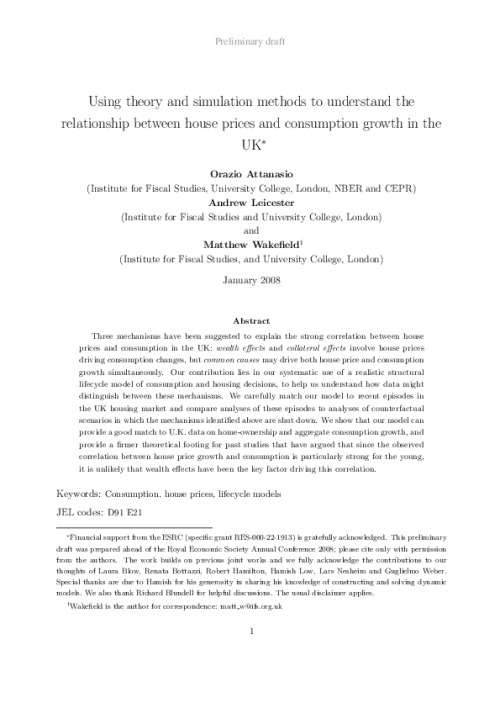<p><p>Three mechanisms have been suggested to explain the strong correlation between house prices and consumption in the UK: wealth effects and collateral effects involve house prices driving consumption changes, but common causes may drive both house price and consumption growth simultaneously. Our contribution lies in our systematic use of a realistic structural lifecycle model of consumption and housing decisions, to help us understand how data might distinguish between these mechanisms. We carefully match our model to recent episodes in the UK housing market and compare analyses of these episodes to analyses of counterfactual scenarios in which the mechanisms identified above are shut down. We show that our model can provide a good match to UK data on home-ownership and aggregate consumption growth, and provide a firmer theoretical footing for past studies that have argued that since the observed correlation between house price growth and consumption is particularly strong for the young, it is unlikely that wealth effects have been the key factor driving this correlation.</p></p>











